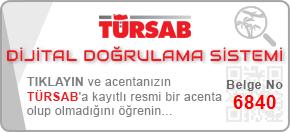Gluten-free diet regimens have obtained substantial popularity in the last few years, with a boosting variety of individuals choosing to follow this nutritional technique. However just what does it mean to follow a gluten-free diet? In this post, we will explore the ins and also outs of a gluten-free diet regimen, including what it involves, who may take advantage of it, and also exactly how to browse the difficulties that might develop.
Gluten is a kind of healthy protein typically found in grains such as wheat, barley, and rye. It is what provides dough its flexible texture and aids it climb throughout the baking process. Nevertheless, for people with celiac illness, non-celiac gluten sensitivity, or wheat allergic reactions, eating gluten can result in numerous wellness issues. Therefore, they need to strictly stick to a gluten-free diet regimen to maintain their health.
Who Should Follow a Gluten-Free Diet?
There are numerous problems in which complying with a gluten-free diet regimen is critical for optimum health:
- Gastric Disease: People with gastric condition have an autoimmune disorder tonerin sūdzības where consuming gluten causes an immune response that harms the small intestine. This can lead to nutrient deficiencies, digestion problems, as well as other issues.
- Non-Celiac Gluten Level Of Sensitivity: Some individuals may experience signs and symptoms similar to those with gastric disease but do not have the problem. They might still gain from a gluten-free diet plan to minimize signs and symptoms such as bloating, looseness of the bowels, as well as exhaustion.
- Wheat Allergic reaction: While not specifically related to gluten, some people might have an allergic reaction to wheat. In such situations, staying clear of gluten-containing grains is required.
It is vital to speak with a medical care expert prior to starting a gluten-free diet plan to guarantee an exact diagnosis as well as appropriate guidance.
Navigating a Gluten-Free Diet Plan
Following a gluten-free diet requires cautious consideration and a thorough understanding of the foods that are risk-free and also those to stay clear of. Here are some essential techniques to navigate a gluten-free diet efficiently:
- Educate Yourself: Take the time to learn more about the foods which contain gluten and those that are naturally gluten-free. Familiarize yourself with active ingredients and food labels to make enlightened options.
- Choose Normally Gluten-Free Foods: Lots of entire foods are naturally gluten-free, such as fruits, vegetables, meats, fish, eggs, legumes, and milk products. Incorporate these right into your diet regimen to make certain a selection of nutrients.
- Be Cautious of Cross-Contamination: When preparing dishes, it is essential to avoid cross-contamination with gluten-containing components. Clean as well as sanitize utensils, reducing boards, as well as surface areas to prevent any type of unexpected exposure to gluten.
- Discover Gluten-Free Alternatives: Thankfully, there is a wide array of gluten-free choices readily available in shops, consisting of grains like quinoa, rice, and also corn, along with gluten-free flours and baked products.
Challenges as well as Factors to consider
While a gluten-free diet regimen can be advantageous for those with specific health and wellness conditions, it is not without its difficulties. Below are some factors to consider to bear in mind:
- Social Situations: Eating in restaurants or participating in occasions can be difficult, as many recipes may include concealed sources of gluten. Connect your dietary requirements to the dining establishment or host in advance to make certain ideal alternatives.
- Nutritional Deficiencies: Cutting out gluten-containing keto eat & fit recensioni negative grains may lead to some nutrient deficiencies, such as fiber, B vitamins, and iron. It is essential to look for alternate sources of these nutrients to keep a balanced diet plan.
- Expense: Gluten-free items are often extra expensive than their gluten-containing counterparts. Preparation meals as well as incorporating naturally gluten-free foods can aid take care of costs.
Final thought
A gluten-free diet is required for individuals with gastric condition, non-celiac gluten sensitivity, or wheat allergies to preserve their health and wellness. By recognizing the problems that call for a gluten-free diet plan, enlightening oneself on risk-free food options, as well as browsing the challenges that might occur, individuals can efficiently abide by this dietary strategy. Constantly talk to a healthcare professional prior to making any type of substantial nutritional modifications to guarantee the most effective strategy for your details needs.






